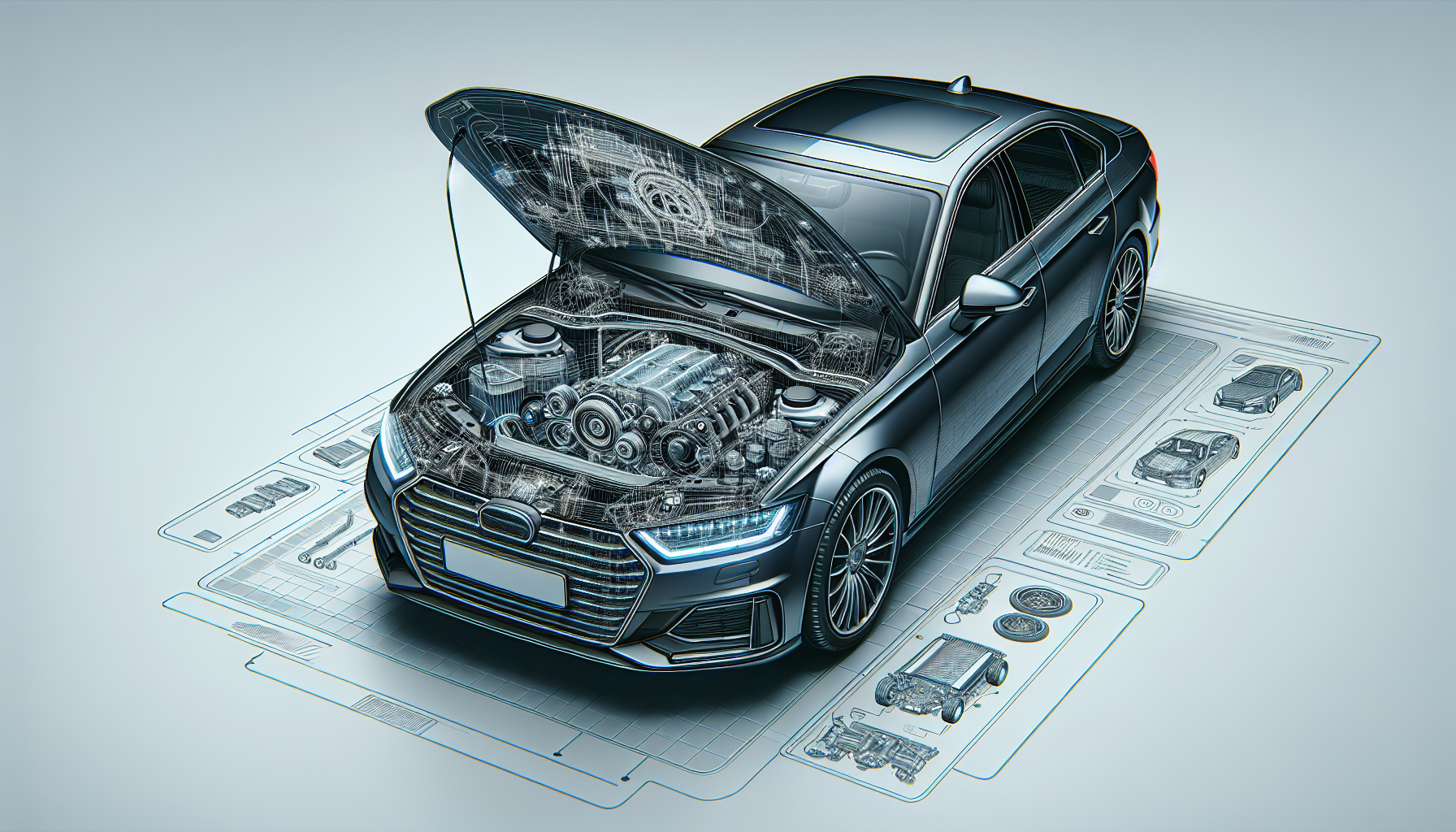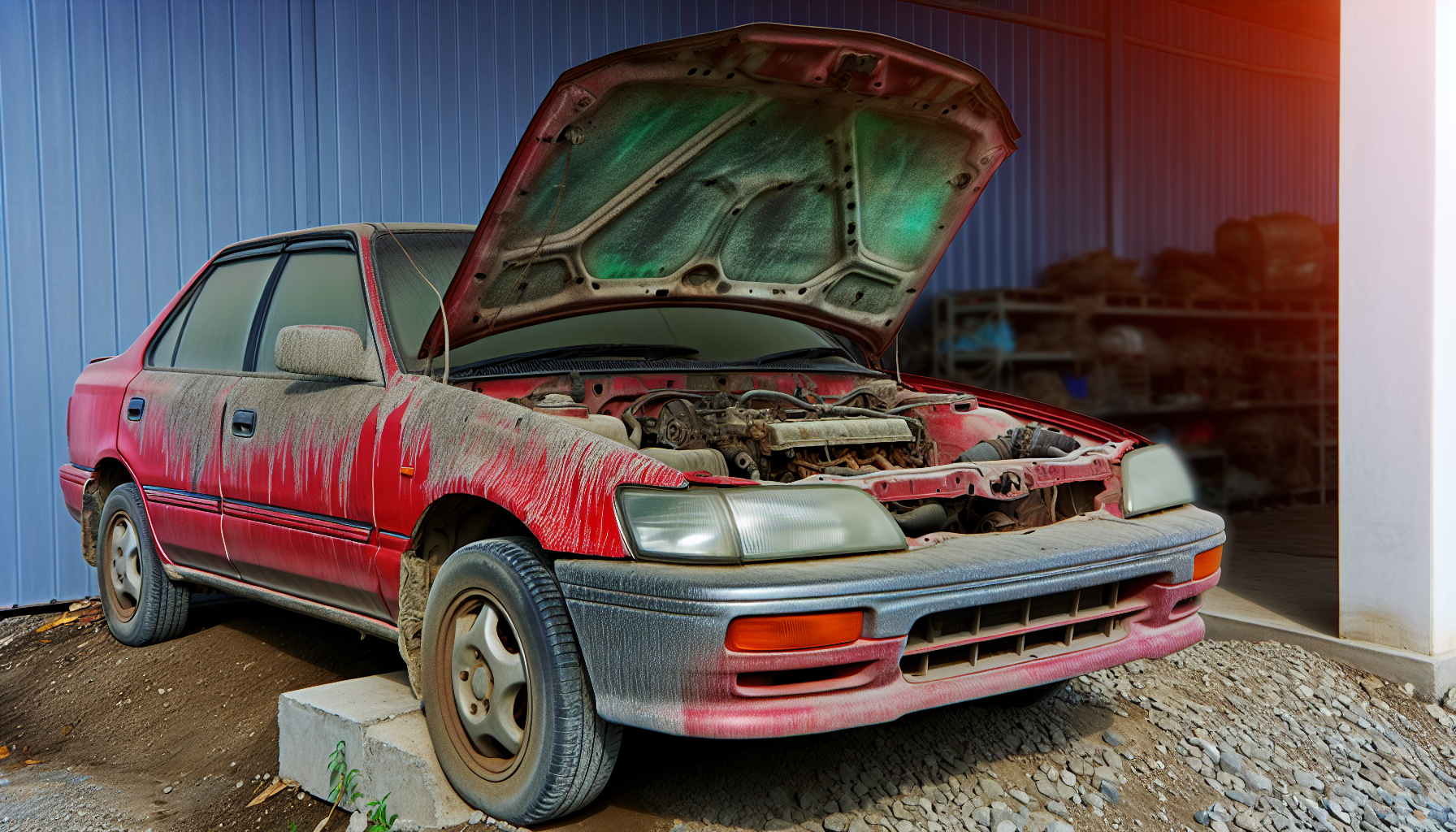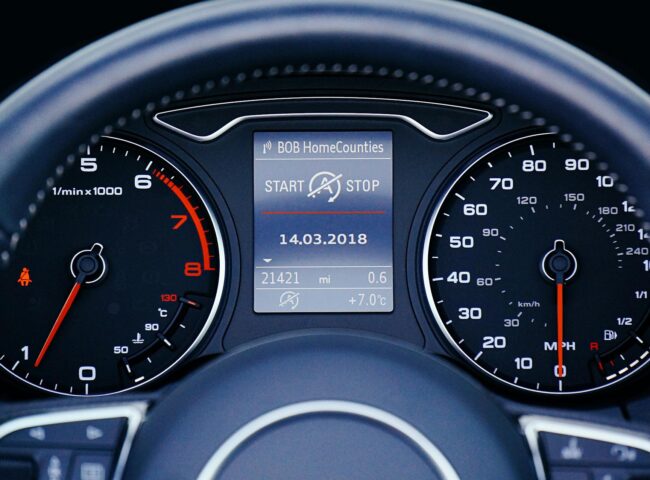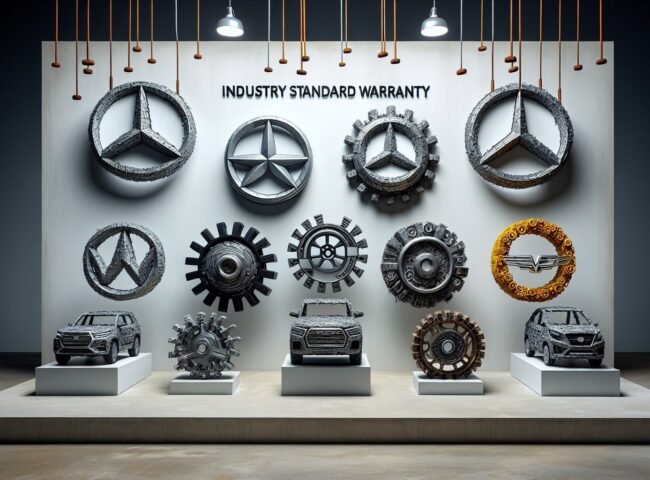If you’ve ever wondered why auto warranty claims get denied, you’re not alone. This article dives straight into the top reason auto warranty claims are denied, providing you with the knowledge needed to avoid common mistakes and make the most of your warranty. Stay informed and prepare to protect your right to claim.
Key Takeaways
- Extended auto warranties provide additional coverage beyond factory warranties but often exclude routine maintenance and unauthorized modifications, and strict adherence to service schedules is crucial to avoid claim denials.
- Warranty claims can be denied due to reasons such as poor maintenance, misuse of the vehicle, unauthorized modifications, or disagreements between repair shops and warranty providers; thus, understanding and adhering to warranty terms is essential.
- Choosing the right extended warranty provider involves considering the provider’s reputation, coverage options, flexibility, claim process efficiency, and quality of customer service.
Understanding Auto Warranty Coverage

When you purchase a car, whether new or certified pre-owned, it usually comes with a manufacturer’s warranty, also known as a factory warranty. This warranty, often effective for at least three years or 36,000 miles, provides initial coverage for your vehicle, covering most components barring routine maintenance items. The factory warranty typically includes a bumper-to-bumper warranty and a powertrain warranty, covering crucial parts like the engine and transmission.
But what happens when the factory warranty expires? This is where extended warranties come into play. Also known as service contracts, they can be purchased from dealers, manufacturers, or third-party providers. These extended auto warranty options extend coverage beyond the expiration of factory warranties, ensuring that your vehicle remains protected for a longer period. Choosing the right extended warranty is key to maintaining peace of mind regarding your vehicle’s maintenance and repair costs.
Types of Auto Warranties
Extended warranties can be purchased for both new and certified pre-owned cars, offering additional benefits like free rental cars and roadside assistance. But it’s important to understand the differences between manufacturer and third-party extended warranties before making a choice.
Manufacturer extended warranties often need to be purchased while the factory warranty is still active and typically restrict repair services to dealer-certified shops. On the other hand, third-party warranties might be offered by warranty companies, auto lenders, or auto insurance companies. They could be less expensive but may require upfront payment for repairs, followed by reimbursement. Grasping these differences will enable you to select the warranty that aligns with your needs and budget.
What’s Usually Covered
Factory car warranties usually include:
- Bumper-to-bumper coverage, covering major parts such as the powertrain, electronics, air conditioning and heating, safety equipment, and steering.
- Powertrain warranties, which specifically cover the engine, transmission, axles, driveshafts, transfer case, and differentials.
- Drivetrain warranties, which cover the transmission, axles, and other drivetrain components, but exclude the engine.
Extended warranties, or vehicle protection plans, typically do not cover routine maintenance services. They outline essential exclusions beyond the warranty’s scope. Other warranties may protect against specific concerns such as failures of emission system components, including exhaust pipes, and catalytic converters, and damages from corrosion. Hence, it’s vital to comprehend what’s included and what’s not before committing to an extended warranty.
Top Reasons for Auto Warranty Claim Denials

While having a warranty provides a sense of security, it’s important to understand that not all warranty claims get approved. There are various reasons why an auto warranty claim can be denied, including:
- Failure to properly maintain the vehicle
- Pre-existing conditions or damage
- Modifications or alterations to the vehicle
- Failure to follow the terms and conditions of the warranty
Being aware of these reasons can help you avoid potential pitfalls when making a warranty claim.
Pre-existing conditions or issues present prior to purchasing the warranty or during the validation period can lead to claim denials. Vehicles that have a branded or salvaged title due to significant damage or disasters typically do not qualify for warranty coverage.
Misuse of the vehicle, such as racing, off-roading, using the vehicle for commercial purposes, or towing beyond the manufacturer’s recommendations, can result in denied warranty claims. Unauthorized vehicle modifications, like installing oversized rims or aftermarket exhaust systems, can also be grounds for denying warranty claims.
Even something as seemingly insignificant as altering the vehicle’s odometer can cause denial of warranty claims due to mileage discrepancies. And let’s not forget overcharging for repairs, where costs exceed the accepted national guidelines, can result in either partial or complete denial of a warranty claim.
Poor Maintenance or Skipped Service Visits
Caring for your vehicle is crucial to ensure that your warranty claim won’t be denied. Poor maintenance or skipped service visits can lead to a claim denial. Adhering to the manufacturer’s guidelines for regular maintenance such as oil changes and service visits is the best way to prevent warranty claim denials. If required maintenance is skipped, it can negatively impact a claim’s status and lead to a denied claim.
Bear in mind that neglecting routine maintenance risks claim denial. Consequently, keeping up with vehicle maintenance and treating it well is crucial. A well-maintained vehicle not only ensures a smoother ride but also bolsters your chances of getting your warranty claim approved.
Unauthorized Modifications or Aftermarket Parts
While it might be tempting to customize your car with aftermarket parts or modifications, it’s important to bear in mind that such changes can void your warranty, leading to claim denials. Unauthorized modifications, such as alterations to the suspension or exhaust systems, can lead to warranty claim denial.
Aftermarket modifications that are not permitted by the warranty policy, like aesthetic changes or performance enhancements, can void an extended car warranty. These modifications often aim at increasing power or altering vehicle performance, thereby carrying an increased risk of damage and warranting claim denials. So, before you decide to give your car a makeover, consider the potential implications on your warranty.
Misuse or Abuse of the Vehicle
Your vehicle is designed to serve you faithfully, but that doesn’t mean it can’t be mistreated. Misuse or abuse of the vehicle, such as racing, heavy towing, or unauthorized off-road use, can lead to warranty claims being denied. Such activities are often excluded by warranty terms and can void any warranty claims due to the increased stress on the car. So, it’s essential to handle your car with care and respect its limitations to prevent warranty claim denials.
Even the kind of work you use your car for can impact warranty claims. For instance, ride-sharing work, which can result in excessive wear and tear, may void any warranty claims due to the increased stress on the car. Therefore, it’s essential to understand and adhere to the terms and conditions of your warranty to ensure valid claims.
Repair Shop and Warranty Provider Disagreements
Disagreements between repair shops and warranty providers can often lead to warranty claim denials. These disagreements can arise from differences of opinion regarding:
- Whether a certain repair is covered under the warranty
- Whether an issue is seen as normal wear and tear, which may not be covered
- Whether a mechanical breakdown is covered
Conflicts may also arise from disputes over the reimbursed cost of partial repairs or replacements, with warranty providers often applying a depreciation factor to coverage. Differences between actual labor costs charged by mechanics and the predetermined amounts covered by warranty providers can also be a source of contention and result in denied claims.
Hence, it’s vital to comprehend your warranty terms and sustain open communication with both the repair shop and warranty provider to circumvent such conflicts.
How to Prevent Auto Warranty Claim Denials

Knowing the common reasons for warranty claim denials is only half the battle. The real challenge lies in avoiding these pitfalls. Certain guidelines and best practices can significantly ease the claims process for auto warranties. Adhering to these can not only give you a smoother ride but also keep your hard-earned money from going into unnecessary repairs.
Whether it’s keeping accurate track of vehicle maintenance records, resisting the urge to modify the car with unauthorized aftermarket parts, or selecting a reputable repair facility, every action counts in maintaining the validity of your warranty and ensuring successful claims. Let’s delve into each of these preventive measures in detail.
Regular Maintenance and Documentation
One of the primary reasons for claim denial is failing to adhere to the service maintenance schedule recommended in the vehicle’s owner’s manual. Regular maintenance provides valuable insight into the vehicle’s condition and ensures the proper upkeep with regard to extended auto warranties.
It’s not enough to just perform the maintenance; it’s equally important to keep a record of it. Detailed maintenance records help calculate the total ownership costs, which is beneficial for both maintenance budgeting and potential resale. A well-maintained service log not only aids in efficient vehicle upkeep but also substantiates maintenance work for warranty purposes.
Having comprehensive maintenance logs can significantly enhance a vehicle’s resale value by demonstrating to potential buyers the consistent care the vehicle has received.
Avoid Unauthorized Modifications
While the idea of modifying your car to suit your personal taste or to boost its performance might be tempting, it’s important to remember that unauthorized modifications can void your warranty coverage and lead to denied claims. Most auto warranties do not allow for modifications or only permit non-permanent changes.
Before you decide to modify your vehicle, it’s important to check the warranty policy’s fine print to ensure that your coverage is not jeopardized. So, just as you would not want to risk your health by consuming something you’re allergic to, why take the risk of voiding your warranty with unauthorized modifications?.
Choose a Reputable Repair Facility
Where you get your vehicle repaired can have a significant impact on your warranty claim. Most factory warranties require maintenance and repairs to be conducted at authorized dealerships or repair shops, and pre-approval for repairs is often required by warranty providers to avoid claim denials. Choosing a reputable repair facility is therefore crucial. Such facilities typically:
- Employ certified technicians
- Are affiliated with automotive industry organizations
- Provide written warranties on all parts and labor
- Use OEM parts and state-of-the-art equipment
- Offer value-added services such as transportation for customers, demonstrating their commitment to customer satisfaction
Recommendations from friends and family or checking with the state consumer protection office can help you find a trusted auto repair shop.
Navigating the Auto Warranty Claims Process

Understanding the auto warranty claims process can help you navigate it with ease. The process begins by precisely following the steps provided by your auto warranty service provider. Effective communication with the service provider is crucial for successfully navigating the warranty claims process.
However, keep in mind that repair delays can arise from factors like:
- Scheduling conflicts
- Lack of immediate part availability
- Labor duration
- The necessity for specialized technicians
Thus, it’s the service provider’s responsibility to maintain proactive and frequent communication regarding any delays or issues throughout the repair timeline.
Filing a Claim
To begin the auto warranty claim, take the vehicle to an approved service center if you experience any mechanical problems or failures. It’s essential to gain a clear understanding of the claims process, including knowing how to make a claim, who will handle repairs, and whether repairs need to be done by the original seller to get your auto warranty claim approved.
Moreover, confirming that the chosen service center is authorized by the warranty provider is crucial to ensure a smooth claims process and avoid needless denials. A little homework and preparation can go a long way in making the claims process a breeze.
Appealing Denied Claims
If a warranty claim denied situation occurs, all hope is not lost. Providing detailed, timely, and accurate information can increase the chances of overturning a denied claim. There are also state consumer protection services that provide recourse for consumers with denied extended warranty claims.
Although legal action is an option for denied claims, the costs might outweigh the benefits. Hence, it’s recommended to explore all other options first before considering litigation. Remember, persistence and patience can often pay off when it comes to appealing denied claims.
Knowing Your Rights
As a consumer, it’s important to know your rights when it comes to auto warranties. The Magnuson-Moss Warranty Act provides the following protections:
- Prevents manufacturers from unfairly or misleadingly disclaiming warranties
- Sets guidelines to ensure consumer rights are protected
- Requires warranties to be clearly written
- Provides consumers with detailed information about coverage
- Outlines the responsibilities of both the warrantor and the consumer
By understanding these rights, you can make informed decisions about your auto warranty.
The Act also prohibits ‘tie-in sales’ provisions that require consumers to use specific brands or services for maintenance and repairs to maintain their warranty coverage. As per the guidelines under the Magnuson-Moss Warranty Act, consumers have the right to have their vehicle serviced at any reputable repair facility and to use parts of their choosing without voiding their warranty. Knowing your rights can empower you to make informed decisions when it comes to your auto warranty.
Selecting the Right Extended Warranty Provider

Choosing the right extended warranty provider is no small task. A reliable provider should have a robust financial base to ensure they can fulfill future claims. The provider’s reputation for meeting its obligations to consumers is also critical for establishing trust.
Equipped with this knowledge, we’ll further explore the factors you should consider when selecting your extended warranty provider.
Reputation and Customer Reviews
The company’s reputation offering the extended warranty is directly linked to the warranty’s value. Evaluating the company’s operational duration and searching for reviews or complaints online using terms like ‘review’ or ‘complaint’ with the company’s name can be beneficial. This can provide a clear picture of the provider’s history and customer opinions.
Confirming the extended warranty provider’s affiliation with recognized entities, such as the Better Business Bureau or local Chambers of Commerce, can reinforce their reliability. Contacting the state consumer protection office can also yield valuable information regarding past complaints or legal issues concerning the extended warranty provider.
A provider’s reputation serves as a vital indicator of their dependability and dedication to customer service.
Coverage Options and Flexibility
Other significant factors when selecting an extended warranty provider include extended warranty coverage options and flexibility. For new vehicles, it’s critical to explore extended warranty options before the factory warranty expires. For used vehicles, warranties can be purchased at any time to manage repair costs as the vehicle ages.
Third-party warranties provide options for customization of coverage levels and deductible amounts, facilitating a plan that aligns with individual needs and financial capacity. On the other hand, manufacturer extended warranties require repairs at dealer-certified shops using brand parts, whereas third-party warranties offer broader options for repair locations and may utilize generic parts. Understanding these differences will help you choose a plan that suits your unique needs and budget.
Claims Process and Customer Service
Extended warranty owners require a straightforward extended warranty claim process. It ensures quick and stress-free reimbursements or service delivery, thus preserving the value of the warranty. A warranty is only as good as its service, and a warranty company that offers a simple, efficient claims process is definitely one worth considering, especially when it comes to most extended warranties.
The quality of the provider’s customer service is another critical factor to take into account. You want a provider who is easy to reach, responsive to your queries, and helpful in resolving any issues you may encounter. After all, what use is a warranty if getting help when you need it most becomes a Herculean task?
Summary
Navigating the world of auto warranties can seem daunting, but armed with the right knowledge, it’s a journey you can confidently undertake. From understanding the different types of warranties and their coverages to learning the common reasons for claim denials and how to avoid them, this blog post has aimed to provide you with comprehensive guidance.
Remember, the key to a smooth auto warranty experience lies in being informed, vigilant, and proactive. So, do your homework, understand your warranty coverage, keep your vehicle well-maintained, and make informed decisions. After all, a well-protected vehicle doesn’t just ensure a smoother ride but also a smoother life.
Frequently Asked Questions
How do I dispute a car warranty denial?
You can dispute a car warranty denial by contacting the warranty provider to understand the reason for the denial and to explore possible avenues for a resolution. If necessary, escalate your complaint to higher levels such as the dealership, manufacturer, or relevant consumer protection authorities.
What will void an endurance warranty?
Engaging in off-roading, racing, or other activities beyond normal driving conditions can result in voiding your endurance warranty. Avoid these activities to maintain your warranty coverage.
What is the difference between a factory warranty and an extended warranty?
The main difference between a factory warranty and an extended warranty is that the factory warranty comes with a new car and typically lasts for three years or 36,000 miles, while an extended warranty can be purchased to extend coverage beyond the factory warranty.
What should I consider when choosing an extended warranty provider?
When choosing an extended warranty provider, consider their reputation, coverage options, flexibility, claims process, and customer service quality to make an informed decision.
What are my rights under the Magnuson-Moss Warranty Act?
Under the Magnuson-Moss Warranty Act, you have the right to clear, detailed warranty information, freedom to choose your repair facility, and the ability to use your preferred parts without voiding the warranty. Date not required.





